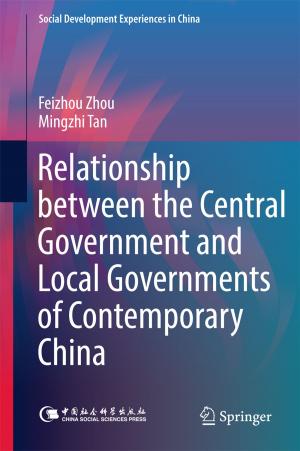Urban and Regional Planning Education
Learning for India
Nonfiction, Social & Cultural Studies, Political Science, Politics, City Planning & Urban Development, Reference & Language, Education & Teaching, Counseling & Guidance| Author: | ISBN: | 9789811006081 | |
| Publisher: | Springer Singapore | Publication: | April 27, 2016 |
| Imprint: | Springer | Language: | English |
| Author: | |
| ISBN: | 9789811006081 |
| Publisher: | Springer Singapore |
| Publication: | April 27, 2016 |
| Imprint: | Springer |
| Language: | English |
This is the first volume exclusively dedicated to planning education, with a focus on India and learning from global experiences for India. Prior to the 1990s, planning education in India was largely confined to national and local economic concerns. Within a globalized scenario, such pedagogies and theories have become outmoded. With new concerns emerging in planning, new pedagogical tools and theorizations need to be developed within planning curricula to provide today’s planners with the wherewithal to adapt to changing and globalizing cities and regions in India. Therefore, the eminent contributors to this volume deal exclusively and comprehensively with planning education in a globalized context. Divided into four thematic sections, this volume provides a comprehensive view of planning education in India, with focus on:
• The trajectory of planning education in India.
• The kinds of knowledge used for teaching in Indian planning schools, and whether some sort of integration of diverse knowledges is achieved.
• The ethical foundations of urban and regional planning in Indian planning schools.
• The role of international planning perspectives in providing new insights for Indian planning education.
Comprehensive and topical, this volume is of interest to academics and researchers from planning institutes, urban and regional planners and policy makers, as well as architects, social geographers and economists.
This is the first volume exclusively dedicated to planning education, with a focus on India and learning from global experiences for India. Prior to the 1990s, planning education in India was largely confined to national and local economic concerns. Within a globalized scenario, such pedagogies and theories have become outmoded. With new concerns emerging in planning, new pedagogical tools and theorizations need to be developed within planning curricula to provide today’s planners with the wherewithal to adapt to changing and globalizing cities and regions in India. Therefore, the eminent contributors to this volume deal exclusively and comprehensively with planning education in a globalized context. Divided into four thematic sections, this volume provides a comprehensive view of planning education in India, with focus on:
• The trajectory of planning education in India.
• The kinds of knowledge used for teaching in Indian planning schools, and whether some sort of integration of diverse knowledges is achieved.
• The ethical foundations of urban and regional planning in Indian planning schools.
• The role of international planning perspectives in providing new insights for Indian planning education.
Comprehensive and topical, this volume is of interest to academics and researchers from planning institutes, urban and regional planners and policy makers, as well as architects, social geographers and economists.















